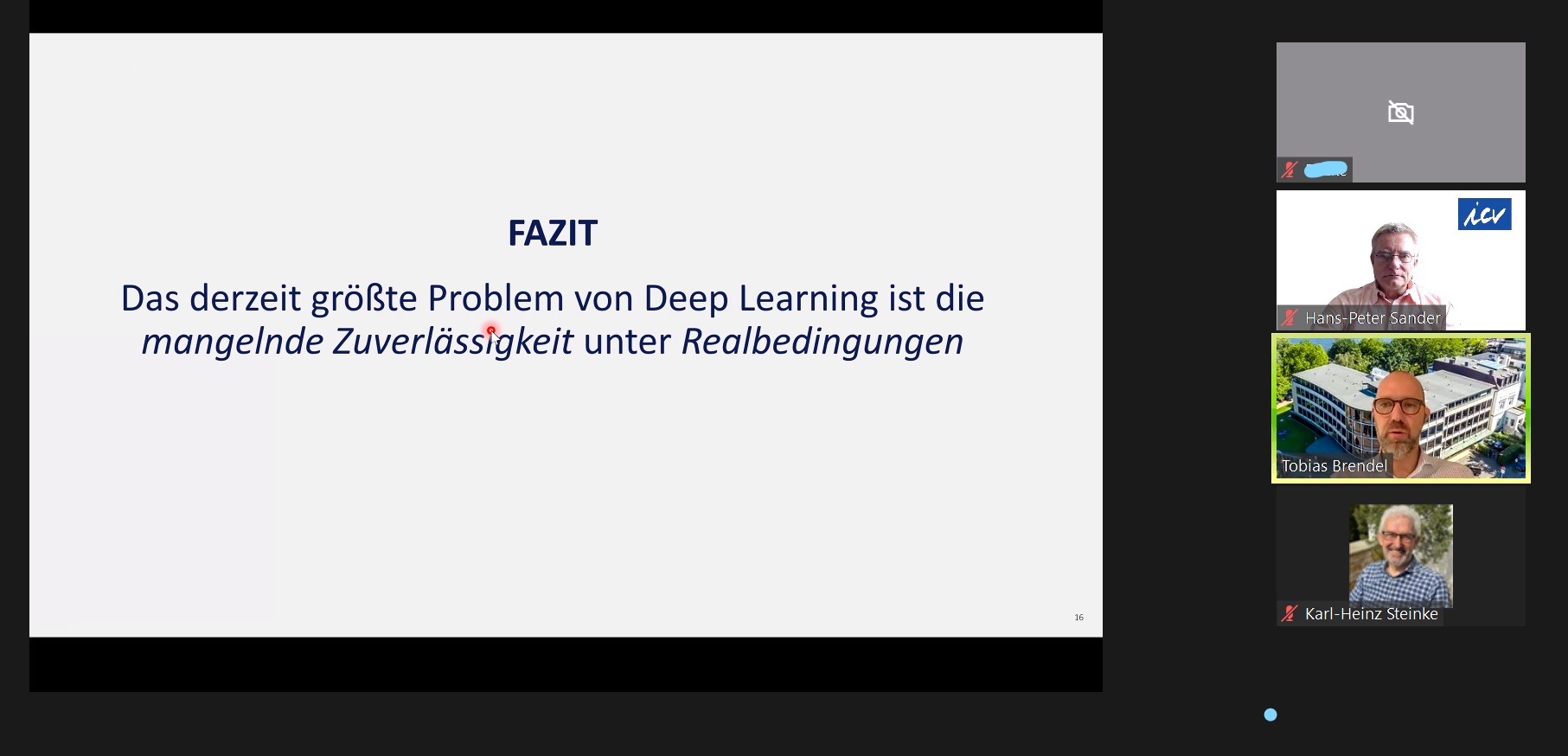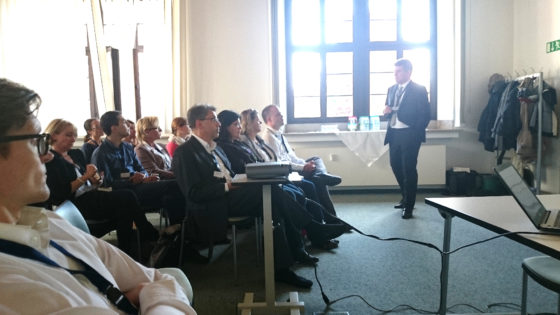 “Was KI wirklich kann und was (noch) nicht”, hat heute Mittag Prof. Dr. Tobias Brendel, MBA, Professor für KI und Data Science an der Hochschule Fresenius in Hamburg, im neuesten ICV Live Webinar mit mehr als 40 Gästen erläutert. Die Hochschule Fresenius für Management, Wirtschaft und Medien GmbH, Campus Hamburg (HSF HH), und der ICV Internationaler Controller Verein sind seit diesem Jahr Kooperationspartner. Der angekündigte “Blick in den KI-Maschinenraum” hat sich gelohnt: Einiges ist viel verständlicher geworden und neben dem “Maschinenraum” gab es einen höchst interessanten Blick in die “KI-Speisekammer”. Gekonnt erklärte Prof. Brendel anhand von Praxisbeispielen, wie KI, wie Machine Learning funktioniert.
“Was KI wirklich kann und was (noch) nicht”, hat heute Mittag Prof. Dr. Tobias Brendel, MBA, Professor für KI und Data Science an der Hochschule Fresenius in Hamburg, im neuesten ICV Live Webinar mit mehr als 40 Gästen erläutert. Die Hochschule Fresenius für Management, Wirtschaft und Medien GmbH, Campus Hamburg (HSF HH), und der ICV Internationaler Controller Verein sind seit diesem Jahr Kooperationspartner. Der angekündigte “Blick in den KI-Maschinenraum” hat sich gelohnt: Einiges ist viel verständlicher geworden und neben dem “Maschinenraum” gab es einen höchst interessanten Blick in die “KI-Speisekammer”. Gekonnt erklärte Prof. Brendel anhand von Praxisbeispielen, wie KI, wie Machine Learning funktioniert.
Sein Fazit für die aufmerksam folgenden Controller*innen: “Das derzeit größte Problem von Deep Learning ist die mangelnde Zuverlässigkeit unter Realbedingungen.” Daraus abgeleitet drei Folgerungen: 1. Wenn ein klar abgrenzbares Problem bei der Musterverarbeitung auftritt, ist Deep Learning ein Lösungskandidat. 2. Vor dem Einsatz von Deep Learning prüfen (lassen), ob ein weniger aufwändiges Verfahren die Aufgabe auch lösen könnte. 3. KI wird sich weiterentwickeln: Tendenziell aber eher über weitere spezifische Anwendungen, als über eine “One fits all”-Lösung.
Danke für dieses tolle, informative wie kurzweilige Webinar!
 “What AI can really do and what (yet) not,” explained Prof. Dr. Tobias Brendel, MBA, Professor of AI and Data Science at the Fresenius University of Applied Sciences in Hamburg in the latest ICV Live Webinar with more than 40 guests. The Fresenius University for Management, Business and Media GmbH, Campus Hamburg (HSF HH), and the ICV International Association of Controllers have been cooperation partners since this year. The announced “look into the AI machine room” was worth it: some things have become much more understandable and next to the “machine room” there was a very interesting look into the “AI pantry”. Using practical examples, Prof. Brendel skilfully explained how AI, how machine learning works.
“What AI can really do and what (yet) not,” explained Prof. Dr. Tobias Brendel, MBA, Professor of AI and Data Science at the Fresenius University of Applied Sciences in Hamburg in the latest ICV Live Webinar with more than 40 guests. The Fresenius University for Management, Business and Media GmbH, Campus Hamburg (HSF HH), and the ICV International Association of Controllers have been cooperation partners since this year. The announced “look into the AI machine room” was worth it: some things have become much more understandable and next to the “machine room” there was a very interesting look into the “AI pantry”. Using practical examples, Prof. Brendel skilfully explained how AI, how machine learning works.
His conclusion for the following attentive controllers: “The biggest problem with deep learning at the moment is the lack of reliability under real conditions.” Three conclusions can be derived from this: 1. If a clearly definable problem arises in the processing of patterns, deep learning is a candidate for a solution. 2. Before using deep learning, check whether a less complex procedure could also solve the task. 3. AI will continue to develop: however, it tends to be more specific applications than a “one fits all” solution.
Thank you for this great, informative and entertaining webinar!



